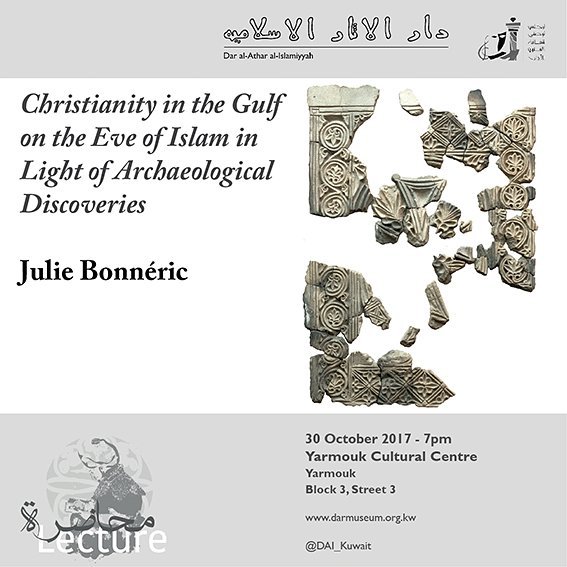Julie Bonnéric
Dr Julie Bonnéric is the co-director of the French-Kuwaiti Archeological Mission. Since 2011, she has been in charge of the study of al-Qusur site, on Failaka Island (Kuwait). She is also a researcher at the Annemarie Schimmel College, University of Bonn (Germany). An archaeologist and pottery specialist, she has worked on excavations in Kuwait, Qatar, Egypt, Lebanon, Jordan and Libya. Bonnéric holds a PhD in Islamic and Medieval History from the EPHE-Sorbonne (Paris), specialising in the history of light and fragrances in Islam.
Christianity in the Gulf on the Eve of Islam in Light of Archaeological Discoveries
Written sources reveal the presence of Christians in the Gulf, in particular through mentions of dioceses from the end of the 4th to the 7th centuries CE, while also suggesting their disappearance in the region after this period. On the contrary, archaeological discoveries testify to the presence of Christian communities in the Gulf during the two first centuries after the Muslim conquest, some settlements being abandoned circa 9th century CE. Archaeological sites such as al-Qusur (Kuwait), Kharg (Iran) or Sir Bani Yas (UAE) are particularly important for retracing the history of both the Gulf and Christianity, but also to understanding the relationship between Muslims and Christians at the beginning of Islam.


